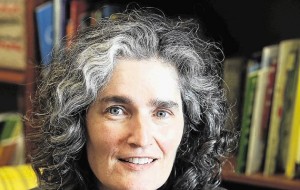 Socrates said all thinking begins with wonder. So how do we develop a sense of wonder in children?
Socrates said all thinking begins with wonder. So how do we develop a sense of wonder in children?
By reading wonderful stories to them.
Tomorrow is World Read Aloud Day – a day to celebrate reading aloud to children. But there is work to be done before all children can expect the regular delight of a skilled reader who breathes life into a story.
Reading (and learning to read) is not a skill that should be learned and then stored for occasional use. Reading is language, something we can lose if we do not use it.
If you have not experienced the joys of getting lost or found in great stories, you are not necessarily well-equipped to choose stories to read to others. You may not have the skill to launch into the performance mode a seasoned reader has to conjure up magic for a young audience.
Research tells us that reading enjoyment, behaviour and attitudes are closely intertwined, and each of these has a positive relationship with reading achievement. The opposite also applies. People who don't experience enjoyment and success from reading read less and benefit less.
This is why Nal'ibali exists as a reading-for-enjoyment campaign. Reading for joy and satisfaction is a critical factor in transforming the South African literacy landscape. It is never too early to start reading to children, and it's never too late either. Through listening to a well-read story, children can learn to use new words, predict outcomes, solve problems, empathise with others and wonder at the world.
Great stories offer us heroes to identify with and villains to judge. They help us heal and move on as we identify and delve into our own issues in a safe and nurturing space. Great stories, read aloud, often have universal themes like hope, loss, friendship, enmity, kindness, fear, love, greed, envy and conflict.
Carole Bloch is the founder of the Nal'ibali - Here's the Story - initiative. She is the director of PRAESA, the Project for Research into Alternative Education in South Africa.
